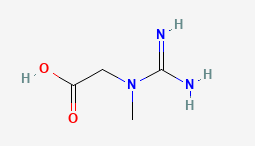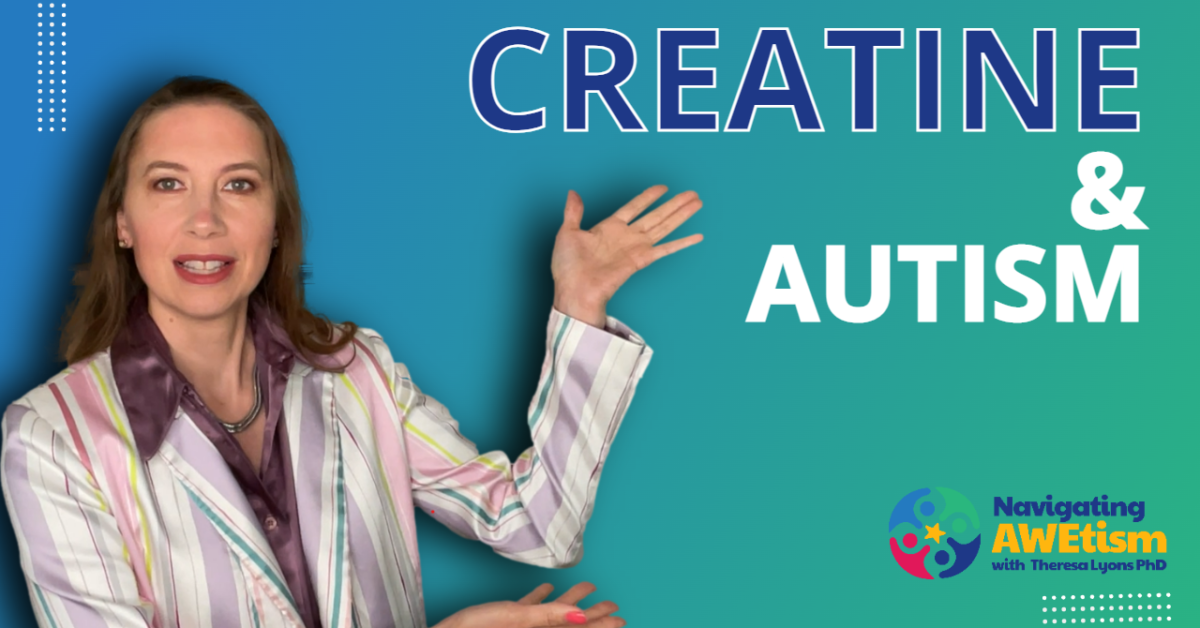Does your child have low muscle tone or language delay or do they walk on their toes?
Does it seem like their body just doesn’t have enough energy?
Creatine might be an important amino acid for you to know about!
There have been cases in the literature where the child’s autism symptoms are actually caused by a co-morbidity. Let’s learn the basics of this important amino acid. Let me go get my slides so you can see what I’m talking about.
Creatine and Autism
Here’s a warning that this is an advanced topic.
Have you taken the basic steps? No?
Then certainly read this post or watch this video. So you know about creatine but take action on the basic steps FIRST. And I’ll give some specific examples toward the end.
Indications of the need of Creatine
After taking the basic steps creatine is used when there is low muscle tone, language delay, deficient expressive speech, certain seizures, and toe walking.
And when I’m talking about creatine here, I know it’s used often with bodybuilders and those who are really trying to build muscle and you could see where there’s some overlap in that. But the creatine that we’re talking about today in this video is autism-specific, not bodybuilding.
What is Creatine?
Creatine is an amino acid that is involved in energy transfer for muscle and brain cells. It’s important to understand that creatine impacts both. When creatine is given as a supplement for those with autism it doesn’t give energy. Creatine is a long-distance energy carrier. There is a very fine difference.
And here’s the structure of creatine if you want to know what that looked like:

Creatine Issue or Comorbidity.
This is where we’re starting to get more granular in this quite advanced step. Creatine deficiency syndrome is an inherited metabolic disorder that is not included in routine newborn screening panels or in standard (and standard is underlined) autism diagnostic workup.
The “standard” really depends on the doctor that you’re working with. Some doctors are extremely thorough and want to do a variety of different tests before making the autism diagnosis. Or if you’re working with a functional medicine doctor and you have the diagnosis already, they are going to be very thorough when they’re doing the diagnostic workup.
So this certainly could be found in the beginning. However, creatine metabolic pathway may play a part in certain symptoms for certain people with autism and it would be a non-CDS (a non-comorbidity creatine issue). Certain things in people’s bodies don’t work optimally but that might not necessarily qualify it as a co-morbidity as a separate diagnosis.
So this is where we’re really fine-tuning. We’re getting very granular with the body chemistry.
Creatine and Autism
There have been clinical trials looking to understand Creatine levels and autism, but nothing conclusive has been found. There have also been some genetic studies trying to understand gene mutations and their impact on creatine, but there’s nothing conclusive yet.
There are no research studies on the impact of giving a person with autism and creatine. And this, makes sense – because this is an advanced step and it wouldn’t make sense to do a non-specific clinical trial on the impact of creatine in someone with autism. You would end up wasting probably several million dollars. So since it is an advanced step, it’s not really studied much in those with autism in the sense of giving a supplement and seeing what happens.
Lab Testing
Blood and urine tests for creatine deficiency are not very predictive and that’s just because of the way the body metabolizes creatine. So just to put this in reference, Let’s take the example of Vitamin D. Everyone likes to measure their vitamin D results. It’s important to do it twice a year. The blood test for vitamin D is technically not testing for vitamin D.
It’s testing for a metabolite of vitamin D.
So the blood and urine test for creatine, it’s hard to have an accurate and predictive test just because the body metabolizes creatine in a little bit of a complex way.
Diagnosis of brain creatine deficiency is done by proton magnetic resonance spectroscopy MRS. And that is not the same as an MRI.
So this is another reason why creatine is more of an advanced step because if your child can’t stay still it will be very difficult to do the MRS. And you might have to do sedation and sedation really worth it when you’re getting this granular. So it’s obviously a decision for the parents or the person to make themselves. But it is just to explain to you why creatine is not a basic step. It could be a very important step for your child but it’s typically not a basic step.
Why is this an Advanced Step?
A little bit more as to why this is an advanced step:
Phosphorylation of creatine is inhibited by mercury.
Not every person with autism has high levels of mercury but it would be best to help the body get rid of any stored mercury rather than trying to supplement with a lot of creatine. Right? So it’s all about getting to the root costs and toxins also impact the creatine transporter system. If you haven’t done a focus on detoxing if it’s necessary, right, there are different tests to answer:
“Does my child really need to focus on detoxing?”
But this is why it’s an advanced step and those are basic steps. So doing a detox – those are done before you would consider supplementing with creatine and it’s really best to get at the root cause of health issues and not try to overcome things by supplementing right? Because when does the supplement end?
If you haven’t got at the root cause you’re always going to have to be supplementing and that’s not what you want for your child, that’s not optimal health.
You want to get at the root cause of the health issue and not have it be a focus on supplementing.
This is why creatine is more of an advanced step. A lot of the basic steps could really impact in a positive way so that you wouldn’t even have to supplement. So basic steps are important to focus on first when it comes to creatine.




